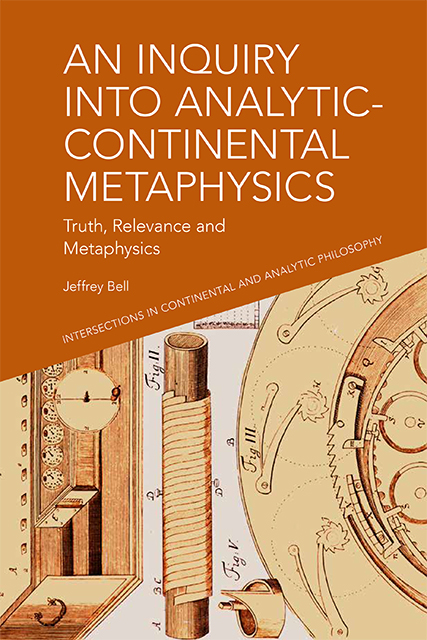Book contents
- Frontmatter
- List of Contents
- Acknowledgements
- Introduction
- §1 Problem of the New
- §2 Problem of Relations
- §3 Problem of Emergence
- §4 Problem of One and Many
- §5 Plato and the Third Man Argument
- §6 Bradley and the Problem of Relations
- §7 Moore, Russell and the Birth of Analytic Philosophy
- §8 Russell and Deleuze on Leibniz
- §9 On Problematic Fields
- §10 Kant and Problematic Ideas
- §11 Armstrong and Lewis on the Problem of One and Many
- 12 Determinables and Determinates
- 13 The Limits of Representational Thought
- 14 Learning from a Cup of Coffee
- 15 Carnap and the Fate of Metaphysics
- 16 Truth and Relevance
- Conclusion
- Bibliography
- Index
12 - Determinables and Determinates
Published online by Cambridge University Press: 25 October 2023
- Frontmatter
- List of Contents
- Acknowledgements
- Introduction
- §1 Problem of the New
- §2 Problem of Relations
- §3 Problem of Emergence
- §4 Problem of One and Many
- §5 Plato and the Third Man Argument
- §6 Bradley and the Problem of Relations
- §7 Moore, Russell and the Birth of Analytic Philosophy
- §8 Russell and Deleuze on Leibniz
- §9 On Problematic Fields
- §10 Kant and Problematic Ideas
- §11 Armstrong and Lewis on the Problem of One and Many
- 12 Determinables and Determinates
- 13 The Limits of Representational Thought
- 14 Learning from a Cup of Coffee
- 15 Carnap and the Fate of Metaphysics
- 16 Truth and Relevance
- Conclusion
- Bibliography
- Index
Summary
1. The Problem of Emergence
To the arguments we have set forth in the previous section, David Lewis could respond by simply saying we have failed to justify our use of emergent properties to explain the phenomena under consideration. Lewis himself admits that emergent properties are not compatible with his approach, arguing that ‘there might be emergent natural properties of more-than-point-sized things … It is not, alas, unintelligible that there might be suchlike rubbish … But if there is suchlike rubbish, say I, then there would have to be extra natural properties or relations that are altogether alien to this world’ (Lewis 1986b, x). Lewis thus feels that emergent properties are unnecessary in accounting for and making sense of worlds like ours, much as he felt that we could do without universals. As was discussed in the previous section, if there were an A and B that remain the same while in turn giving rise to C as an emergent property, a C that is irreducible to A or B, then this would indeed violate Lewis's understanding of supervenience whereby a property (whether natural or not) is understood to be nothing over and above the class of local matters. If C is a new property irreducible to A and B, then C is not a property that is nothing over and above the elements A and B; it is something distinct from A and B. Lewis could argue that we have simply not properly sorted through all the properties involved in the process we are attempting to understand. The process whereby A and B give rise to C may well be capable of being understood in terms of laws that supervene upon local matters and hence be nothing over and above the patterned distribution of elements associated with A, B and C. The same is the case for the reciprocal determination of elements that occurs during improper mixtures that, as Plato argued and as Gibbons and Legg emphasised, corrupts elements if they are not properly mixed. This corruption of elements may in turn be amenable to a lawful explanation that likewise supervenes upon local matters that persist throughout the processes being explained.
- Type
- Chapter
- Information
- An Inquiry into Analytic-Continental MetaphysicsTruth, Relevance and Metaphysics, pp. 115 - 123Publisher: Edinburgh University PressPrint publication year: 2022



